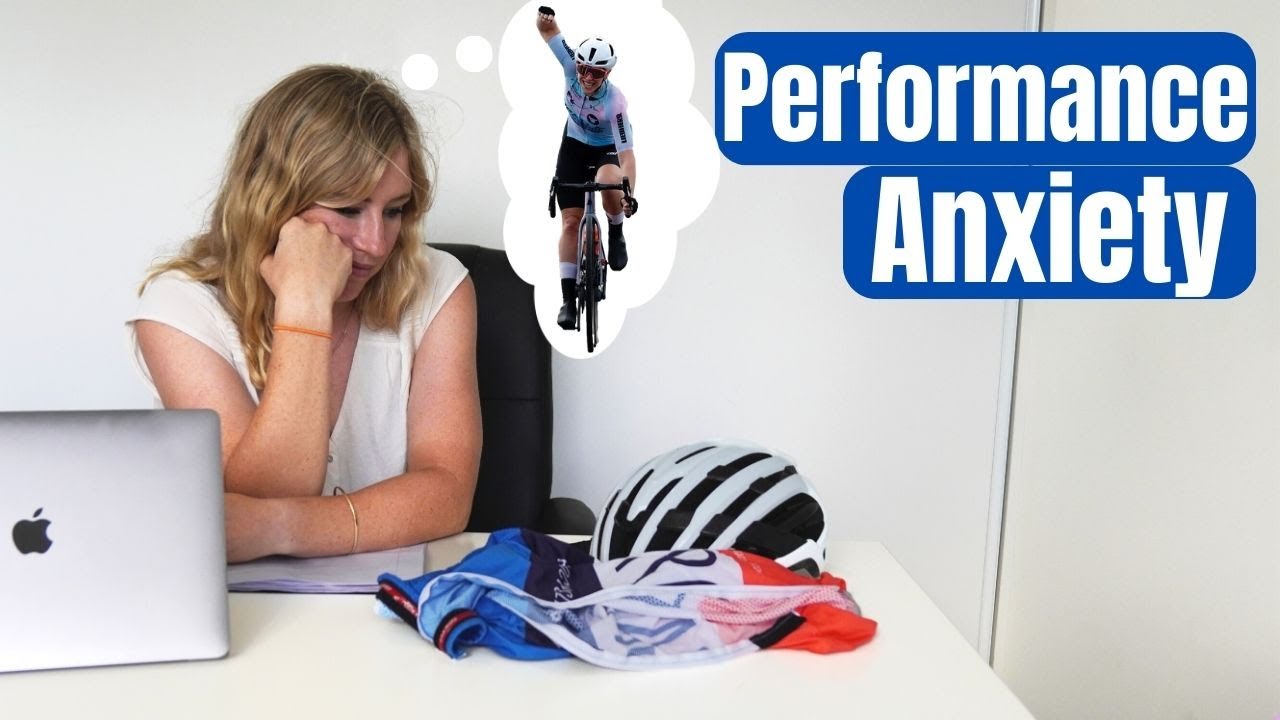How Stress Affects Cycling Performance (& how to fix it) with Road Cycling Academy
Source: Road Cycling Academy Youtube Channel: How Stress Affects Cycling Performance (& how to fix it)
Video How Stress Affects Cycling Performance (& how to fix it) with Road Cycling Academy
Video How Stress Affects Cycling Performance (& how to fix it) with Road Cycling Academy YouTube Channel.
How Stress Affects Cycling Performance (& how to fix it)
For those passionate about road cycling, the stresses of life can have a negative impact on performance both on and off the bike. Stress is an inevitable part of daily life, and it can stem from a variety of sources including work, family, and personal pressures. This chronic stress can lead to a number of physical and mental health issues that can hinder a cyclist’s performance and overall well-being. In order to mitigate the effects of stress and manage it effectively, it’s important to understand how it affects the body and how to implement strategies to combat it.
**Understanding the Effects of Stress on the Body**
When the body is exposed to chronic stress, it can have a range of negative effects on the cardiovascular system, weight, appetite, sleep, muscle tension, and mental fatigue. From increasing weight and insulin resistance to changes in appetite and sleep patterns, the impact of stress on the body can be significant. Cyclists may experience heightened levels of cortisol (“the stress hormone”), which can lead to weight gain in the midsection and an increased desire for comfort foods. Additionally, muscle tension and mental fatigue can affect overall energy levels and decision-making processes, both on and off the bike. It’s important for cyclists to recognize these effects and develop strategies to manage and mitigate stress in order to optimize their performance.
**Managing Stress: Practical Strategies for Cyclists**
In order to effectively manage and combat stress, cyclists can implement a range of practical strategies to promote physical and mental well-being. From lifestyle changes to mindfulness techniques, there are various tools and methods that can help reduce stress and improve overall performance. One effective strategy is to bring awareness to the triggers of stress and develop a proactive approach to dealing with them. This can include setting aside time for relaxation, incorporating muscle relaxation and meditation into daily routines, and creating more automatic routines and rituals to reduce decision fatigue. This can help cyclists alleviate stress and improve their ability to perform both on and off the bike.
**Setting Boundaries and Prioritizing Time**
Another key aspect of managing stress is learning to set boundaries and prioritize time effectively. Many cyclists may find themselves overwhelmed by the demands of training, work, and personal life, and it’s important to learn how to say “no” and set realistic expectations for what can be achieved within a given timeframe. By creating a weekly schedule and allowing for flexibility, cyclists can better manage their time and reduce the impacts of stress. This can involve using physical or digital calendars to map out training, work, and personal commitments, and making time for relaxation and self-care. By being mindful and realistic in planning, cyclists can set themselves up for success and reduce the risk of burnout and fatigue.
**Coping Strategies for High-Stress Situations**
In high-stress situations, such as before a key event or race, it’s important for cyclists to utilize coping strategies to manage their stress levels effectively. This can involve practicing mindfulness and breathing techniques, such as box breathing, to calm the mind and reduce anxiety. Additionally, distractions, such as music or engaging with fellow athletes, can provide temporary relief from heightened stress levels. Posture and body language can also play a role in managing stress, as adopting a confident and empowered stance can positively influence emotions and reduce stress levels. Cyclists can use these coping strategies to maintain composure and focus before and during high-stakes events, ultimately improving their performance and mental well-being.
**Utilizing Tools and Resources to Combat Stress**
To help cyclists nullify the effects of stress or work with it effectively, utilizing tools and resources is essential. From mental and physical training to nutrition and recovery, cyclists can leverage a wide range of resources to combat stress and optimize their performance. For instance, creating a robust mental training program, incorporating breathing exercises, and participating in mindfulness practices can enhance cyclists’ ability to manage stress and maintain focus. Additionally, collaborating with sports psychologists, nutritionists, and coaches can provide valuable insights and guidance on stress management techniques tailored to individual needs. By leveraging these tools and resources, cyclists can develop a holistic approach to combatting stress and enhancing their overall well-being.
**Long-Term Strategies for Sustainable Performance**
In the pursuit of sustainable performance, it’s crucial for cyclists to implement long-term strategies for managing stress and maintaining overall well-being. This can involve developing a balanced training schedule that includes sufficient rest and recovery, as well as establishing realistic goals and boundaries to avoid burnout. By building resilience and coping mechanisms over time, cyclists can navigate the complexities of stress and achieve sustainable performance improvements. It’s important for cyclists to prioritize mental and emotional health alongside physical training in order to optimize performance and maintain a long-term commitment to the sport.
In conclusion, for road cyclists, effectively managing stress is crucial for maintaining optimal performance and overall well-being. By understanding the effects of stress on the body, implementing practical strategies to combat it, and utilizing tools and resources to support stress management, cyclists can achieve sustainable performance improvements. Through proactive and holistic approaches to stress management, cyclists can navigate high-stress situations and build resilience for long-term success in the sport.
The opinions expressed in this space are the sole responsibility of the YouTube Channel Road Cycling Academy and do not necessarily represent the views of CicloNews.










